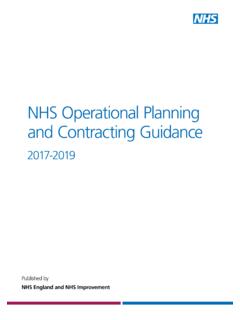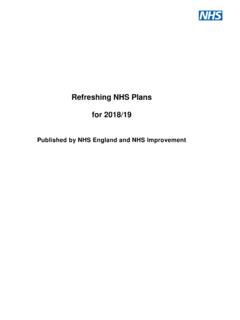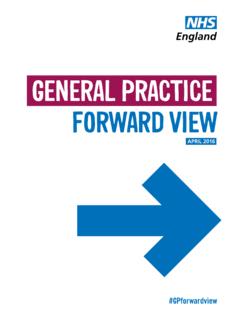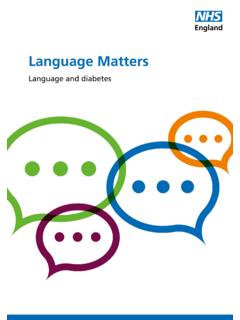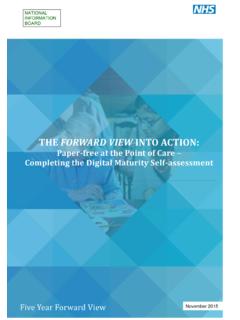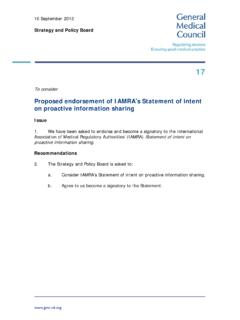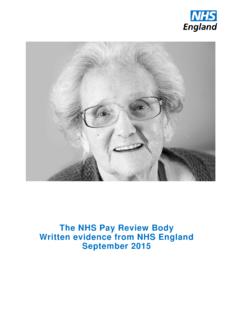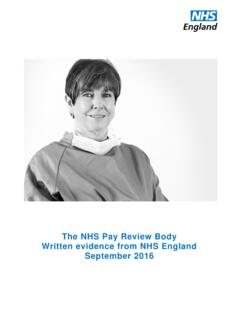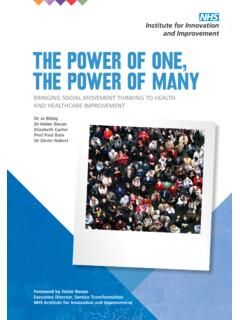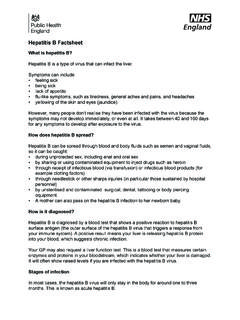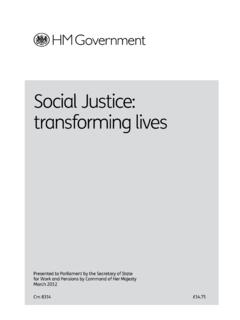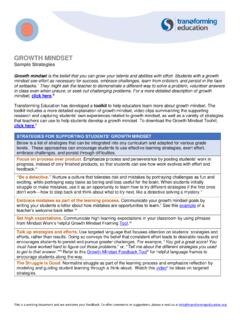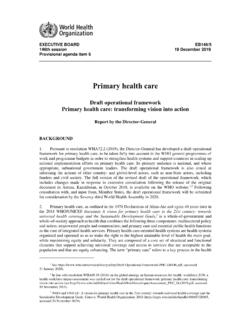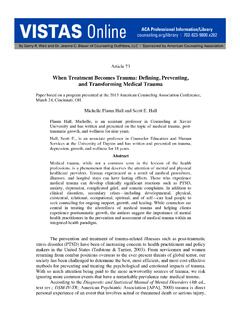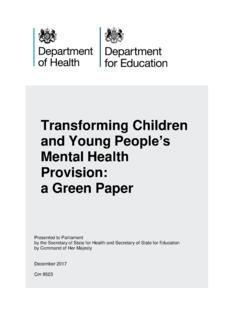Transcription of Transforming Commissioning Services - NHS England
1 WINTERBOURNE. VIEW TIME. FOR CHANGE. Transforming the Commissioning of Services for people with learning disabilities and/or autism A report by the Transforming Care and Commissioning Steering Group, chaired by Sir Stephen Bubb 2014. WINTERBOURNE. VIEW TIME. FOR CHANGE. Transforming the Commissioning of Services for people with learning disabilities and/or autism Published in 2014. Designed and typeset by Soapbox CONTENTS. Foreword 6. Executive summary 8. About this report 12. The problem we are confronting 14. Where we are now 14. Where we need to get to 15. Why has there not been more progress? 17. Recommendations 20. Strengthening rights 20. Forcing the pace on Commissioning 24. Closures 28. Building capacity in the community 31. Holding people to account 36. Appendix 1 37. Membership of the steering group Appendix 2 38.
2 We have the right' statement Appendix 3 40. Challenging Behaviour National Strategy Group Charter . Appendix 4 42. Summary of Recommended Social Investment Structures from Winterbourne View and Social Investment (2014). 6. FOREWORD. The Winterbourne View scandal, exposed by the Panorama programme, shocked the nation. It led to the Government pledge to move all people with learning disabilities and/or autism inappropriately placed in such institutions into community care by June this year. Not only has there been a failure to achieve that movement, there are still more people being admitted to such institutions than are being discharged. This has caused anger and frustration. In light of the need to achieve progress Simon Stevens, the CEO of NHS England , asked me to consider how we might implement a new national framework , locally delivered, to achieve the growth of community provision needed to move people out of inappropriate institutional care.
3 Only by a big expansion of such community provision can we achieve a move from institution to community. So we need a mandatory national Commissioning framework that delivers that expansion, pooled budgets, and a focus on the individual's needs not the system boundaries. The role of the many voluntary and community organisations that both advocate for and provide Services for people with learning disabilities and/or autism is crucial to that aim, as are the individuals themselves, their families, clinicians, managers and professionals across the health service and in local councils, who need to work together to achieve a dramatic turn-around. In tackling this challenge it became clear to me that we need both a major expansion of community delivery driven by better Commissioning but also, crucially, the empowerment of people with learning disabilities and/or autism and their families.
4 That means a clear and robust Charter of Rights and an effective Right to Challenge , backed by strong advocacy and support, that enables citizens to demand change. We also propose that community based providers have the right to propose alternatives to inpatient care from commissioners. And we support a major expansion of the right to request a personal budget; again we believe this underpins an empowerment of the individual citizen to have care and support appropriate to them. In other words we need to drive change from the top through better Commissioning and from the bottom up through empowering people and families to challenge the system. Underpinning a shift to community provision and away from inappropriate institutional care are exciting proposals for workforce development and a new social finance fund.
5 In developing community provision we need social finance to support capital development so we propose a life in the community social investment fund which will support the provision of working capital, investment in housing and an investment readiness partnership fund. This is a new proposal but we recognised that developing community provision needs the funding that social finance can provide and Winterbourne I urge Government and NHS England to push ahead with funding to make View Time this happen promptly. for Change The steering group were clear about the crucial importance of workforce 7. and skills development. This must happen alongside developing community facilities. We were particularly impressed with the momentum around the idea of the Academy set out on this Report. We must ensure that momentum for change is built on by all those involved.
6 And finally, as well as a mandatory national framework for Commissioning that is locally delivered we must have active decommissioning of inappropriate institutional care and closures of such institutions. The timetable and process requires further discussion but a twenty- first century approach to the care and support of people with learning disabilities cannot be based on long-term care in an institution. In putting together this report I want to thank all my colleagues on the steering group, and all those I have met or spoken to, and those who submitted many comments and documents. Even when critical we recognised this came about through the anger of those who have seen a system fail them. In 1851, the American physician and philanthropist Samuel Gridley Howe wrote about the evils of institutional care.
7 He wrote, all such institutions are unnatural, undesirable and very liable to abuse. We should have as few of them as possible, and those few should be kept as small as possible. The human family is the unit of society.. That essential truth underpins our proposals for change and we know they have widespread support. We recognised that as a nation when we closed the old mental health asylums and we must recognise it again here. I have recommended to the chief executive of NHS England that my steering group be brought together again in 6 months to review progress on our recommendations and that we have a formal stock take of actions taken in 12 months' time. We can act as a driver for change but clearly it is the institutions themselves that must deliver these recommendations. And deliver them they must.
8 Over the past few years people with learning disabilities and/or autism have heard much talk but seen too little action, and this forms the backdrop to our recommendations and our desire to see urgent action taken now to make a reality of the Winterbourne pledge. They deserve better and this Report provides recommendations on that essential road map for change. Sir Stephen Bubb Foreword 8. EXECUTIVE SUMMARY. About this report 1. This report is the product of NHS England asking Sir Stephen Bubb, chief executive of charity leaders body ACEVO, to make recommendations for a national Commissioning framework under which local commissioners would secure community-based support for people with learning disabilities and/or autism. This came after a pledge made in the wake the Winterbourne View scandal to enable people with learning disabilities and/or autism inappropriately placed in hospital to move to community- based support by June 20141 was missed.
9 2. Sir Stephen was supported by a steering group of representatives from the voluntary sector, the NHS and local government, individuals with learning disabilities and/or autism, and family members of people with learning disabilities and/or autism. Over the course of its work, the group engaged with a range of stakeholders (from people with learning disabilities and/or autism and their families to commissioners, providers and academics). 3. Whilst originally tasked with drawing up recommendations for a Commissioning framework, it was clear to the steering group that any such framework formulated by NHS England would need to be accompanied by related action from others (including most obviously central and local Government), and our recommendations reflect this. Our starting point is that it is not acceptable in the twenty-first century for thousands of people to be living in hospitals when with the right support they could be living in the community, and that to force change we need both more top-down'.
10 Leadership (from NHS England , local government, central government and other Arms-Length Bodies), and from the bottom up' more empowerment for people with learning disabilities and/or autism and their families. Our recommendations are aimed at both. 4. The failure to meet the Winterbourne View pledge above means there is now a great deal of anger and frustration surrounding this issue. In responding to this report, NHS England and its partners need both to act with urgency, and to be realistic about the timeline for success, so that they do not promise yet another false dawn'. The problem 5. Some people with learning disabilities and/or autism who present challenging behaviour and/or complex mental health problems may need to be admitted to inpatient settings to be assessed and treated particularly if they are liable to detention under the Mental Health Act on the recommendation of mental health professionals or a court.
